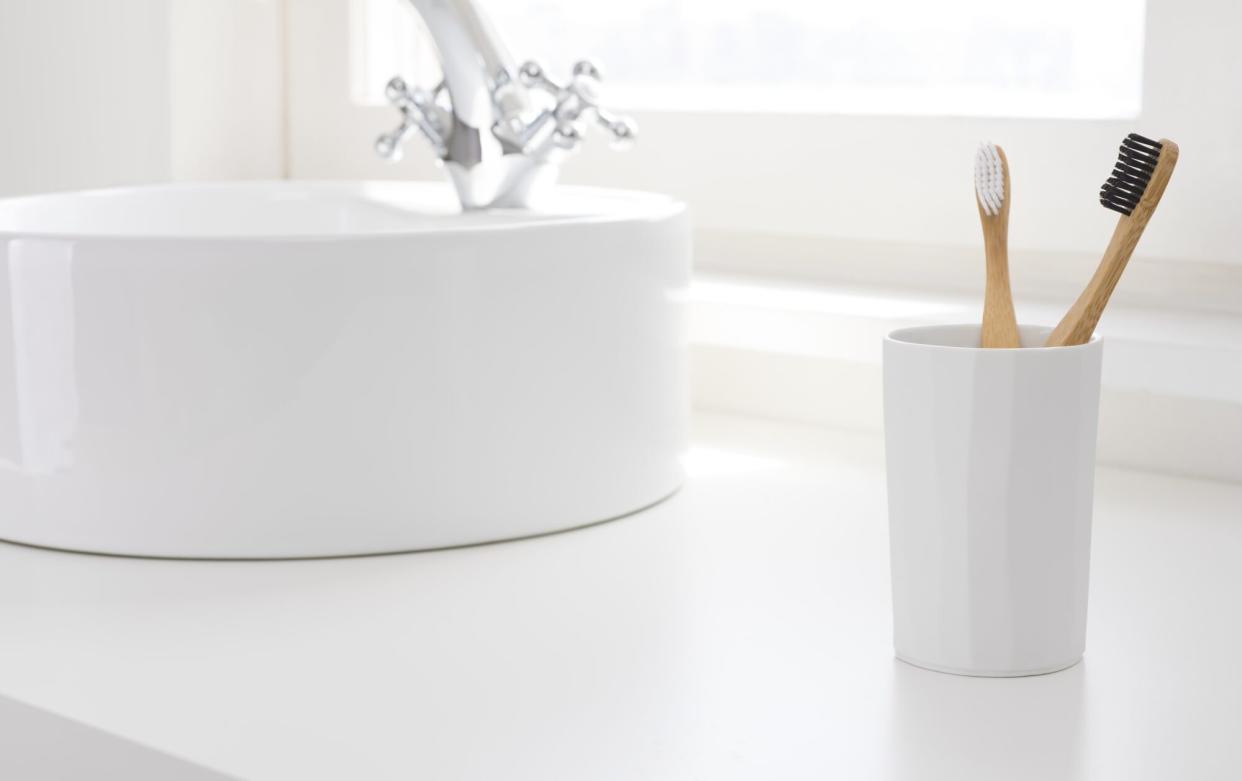Why It's Important to Clean Your Tongue—and How to Do It

Getty Images / didecs
Your tongue has thousands of tiny taste buds, and while that may be good news for your palate, it can make oral hygiene a bit more complicated—those little buds are the perfect place for odor-causing bacteria to hide and, unfortunately, may be causing more than just bad breath. According to dentists, having too much bacteria on your tongue can cause a whole slew of health issues. Luckily, there is a way to reduce germs on this part of your mouth: Make cleaning your tongue part of your daily oral routine to stop bacteria (and odor!) in their tracks.
Related: Do You Absolutely Need to Use Mouth Wash? Here's What the Experts Say
Why Cleaning Your Tongue Is Important
Taste buds are essentially nooks and crannies that can house bacteria, says Chris Kammer DDS, FAAOSH, the Fellow and Founder of the American Academy for Oral Systemic Health and an expert for Spry. "This breeding bacteria is harmful and can contribute to gum disease, tooth decay, and bad breath," he says, noting that, over time, it can even change how food tastes. "Daily tongue brushing or scraping will disrupt the bacteria that wants to thrive on your tongue."
Additionally, Alex Rubinov, DDS, a cosmetic dentist in New York City, says that regular tongue cleaning can decrease your risk of plaque buildup and tooth discoloration, as well. "Cleaning your tongue means removing the bacteria and removing the biofilm which can dull your taste buds," he explains.
How to Clean Your Tongue
There are two effective ways to remove bacteria and buildup from your tongue.
Use a Toothbrush
The first method involves using your toothbrush. Before you get started, however, Dr. Kammer suggests taking a look inside your mouth to identify your tongue's problem spots. "These areas can be discolored. You'll see anything from a light yellow to even a dark brown," he says, adding that these are the places to target with your toothbrush. "Get back as far as you can on your tongue to address those discolored areas."
Use a Tongue Scraper
Because brushing your tongue can cause gagging, some opt to use a tongue scraper, instead. Dr. Rubinov recommends this method over using a toothbrush alone, since it improves the microbiome in your mouth and prevents bad breath.
"Start by placing the scraper at the back of the tongue, while sticking your tongue out," Dr. Rubinov says. "Then, with even pressure, move the scraper from the back of the tongue to the tip, repeating as needed."
When to Clean Your Tongue During Your Oral Hygiene Routine
For the best results, Dr. Rubinov says to "clean your tongue every time you brush your teeth," which translates to twice per day. You should use your toothbrush or scraper after you brush your teeth, but before rinsing, "so that there is still some toothpaste left in your mouth," Dr. Rubinov notes. "It is especially important to clean your tongue in the morning, as your tongue harbors a lot of bacteria. If that isn't cleaned daily, your morning breath has compounding effects."
Cleaning Your Tongue Improves Your Health
Many health professionals tout the importance of practicing good oral hygiene, since it impacts the rest of your body. "Remember, the oral cavity is the portal of entry to your entire body," Dr. Rubinov says. "Maintaining good oral health improves overall health. Bacteria doesn't discriminate and loves to travel and colonize new surfaces." Keeping your tongue clean can help cut down on some of that bacterial spread—and keep you feeling better long-term.

